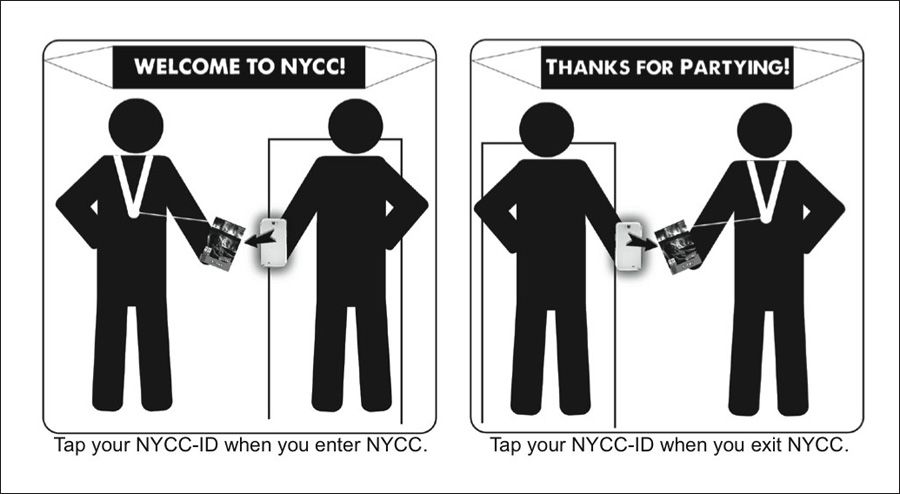In response to New York Comic Con's controversial use of attendees' Twitter accounts to send promotional messages, and the implementation of technology allowing organizers to track individual badges, a staff member for a leading digital-rights group has written an open letter asking all pop-culture conventions to "protect our secret identities."
"You can still have a convention at the cutting edge of culture, without bleeding your attendees' privacy away," wrote David Maass, media relations coordinator of the Electronic Frontier Foundation.
The twin issues are linked to radio-frequency identification (RFID) chips, implemented by NYCC this year in an effort to clamp down on fraudulent badges and badge-sharing among exhibitors. When attendees synced their badges to their Twitter accounts, many missed or misunderstood the text on the opt-in page which granted organizers access to their Twitter accounts, including the ability to send tweets. When enthusiastic promotional messages about the event appeared in their Twitter timelines, attendees were shocked and angered. Following complaints, ReedPOP quickly shuttered the service and issued an apology.
While Lance Fensterman, ReedPOP's global vice president, told ICv2.com the badges' RFID functionality only permits the tracking of individuals going into and out of the venue (and records how much time they spent at the show), he teased to Newsarama that "the options are pretty limitless of how we might use the technology to improve the experience for our fans." And the word "limitless" raises red flags for Maass, who zeroes in on the possibility of "1-to-1 tracking," which "could theoretically allow a controller to follow say, Stan Lee, as he makes his rounds along a convention floor."
"Obviously, these are very public events and an attendee can't expect a lot of privacy — they're likely to pop up in the background of hundreds of photographs posted to social media," he writes. "At the same time, there is a certain anonymity in crowds, and it's an anonymity built into the culture of cons. How many fans would steer clear of controversial graphic novels or manga tables (or even cheesy guilty childhood pleasures) if they knew someone was creating a log of every booth where they lingered? Think about the young LGBT artists who have yet to come out to their parents, but are finding the courage through sitting in the back of a queer comics panel. Would they still enter if they had to scan their personally identifiable badges at the door? Once you open the gate to this technology for third-party marketing, businesses outside the convention hall will be able to track your attendees. Won't that chill the tradition of proudly wearing a badge every moment, from the pre-preview night happy hour to the last after party?"
Read the full letter on the Electronic Frontier Foundation website.

